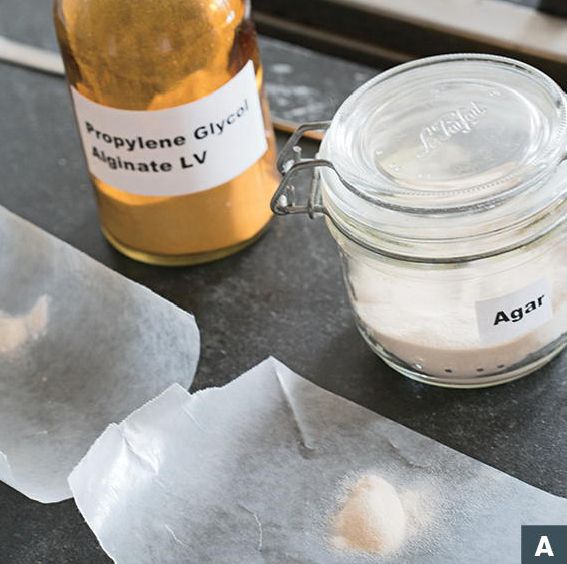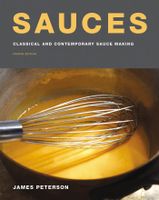Advertisement
Alginates
Appears in
Published 1991
Propylene glycol alginate (no relation to the propylene glycol found in antifreeze) (A)

and sodium alginate are both derived from seaweed. Like low-acyl gellan, both require calcium ions to thicken or set. These ions can be supplied by hard tap water or by calcium in the form of calcium lactate and other compounds.
Propylene glycol alginate acts as a thickener, stabilizes emulsions and foams, lends a creamy mouthfeel to sauces, and forms clear gels. It forms an even stronger gel when used with sugar. Like many hydrocolloids, it resists syneresis—the weeping out of liquid from colloids such as vegetable purées. It hydrates at any temperature, with stirring, in about 5 minutes. It is typically used in concentrations of 0.4% to 1%.


